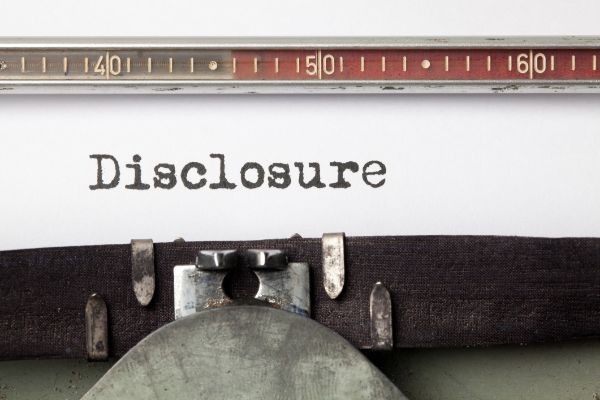The landlord-tenant relationship generally has the potential to be a fraught one. It’s not surprising when you think about it: the arrangement is an intermingling of one person’s property rights (the landlord’s) with the locus of someone else’s daily life and the concepts of habitation and privacy that go along with it (those of tenants). When those concepts are overlapped, resentment has a way of cropping up. It is this complex relationship that has led to laws on various levels—federal, state, and municipal—that attempt to honor both sides. Disclosure laws, for example, require that a landlord give a potential tenant notice of conditions in their lease properties that may be problematic.
The only federal disclosure requirement concerns informing tenants of the presence of lead in certain buildings built prior to 1978. Municipal (county and town/village/city) requirements are highly individualized based on locale. But there are some disclosure rules that all Arizona landlords must follow.
Disclosures made to tenants are usually enumerated in the rental or lease agreement. Per Arizona Revised Statute section 33-1322, Arizona requires the following be included:
- The identity and address of the person who the landlord has authorized to manage the property.
- The identity and address of the owner of the property or a person legally authorized to “act for and on behalf of the owner for the purpose of service of process and for the purpose of receiving and receipting for notices and demands.”
- The fact of the existence of the Arizona Residential Landlord and Tenant Act, and that it can be found on the website for the Arizona Department of Housing.
If you’re looking to either lease out property or to enter into a tenant arrangement in Scottsdale or anywhere else in the state of Arizona, it’s worth understanding what this will require of you. You’ll need an experienced attorney with strong scruples on your side. Provident Law’s real estate attorneys represent parties on either side of real estate and financing transactions, including buyers, sellers, landlords, tenants, lenders, borrowers, trustees, guarantors, shareholders, partners, and others. We structure, negotiate and document a variety of real estate and financing transactions, such as leases, purchase and sale agreements, loans and development agreements for a variety of commercial and residential projects. Contact us for more details.
Christopher J. Charles is the founder and Managing Partner of Provident Law®. He is a State Bar Certified Real Estate Specialist and a former “Broker Hotline Attorney” for the Arizona Association of REALTORS® (the “AAR”). Mr. Charles holds the AV® Preeminent Rating by the Martindale-Hubbell Peer Review Ratings system which connotes the highest possible rating in both legal ability and ethical standards. He serves as an Arbitrator and Mediator for the AAR regarding real estate disputes; and he served on the State Bar of Arizona’s Civil Jury Instructions Committee where he helped draft the Agency Instructions and the Residential Landlord/Tenant Eviction Jury Instructions.
Christopher is a licensed Real Estate Instructor and he teaches continuing education classes at the Arizona School of Real Estate and Business. He can be reached at Chris@ProvidentLawyers.comor at 480-388-3343.


